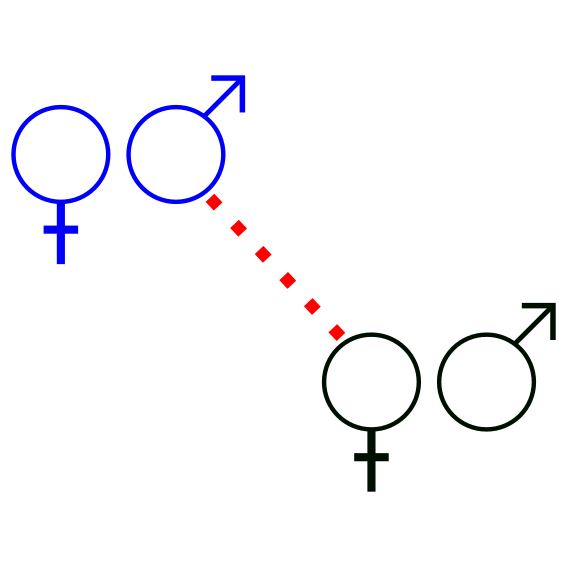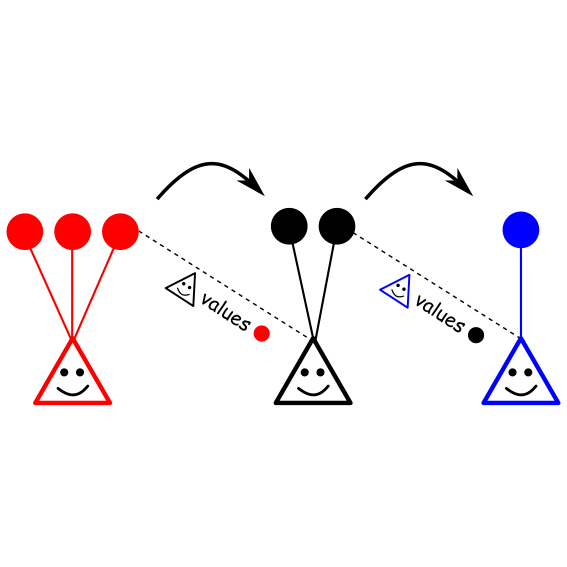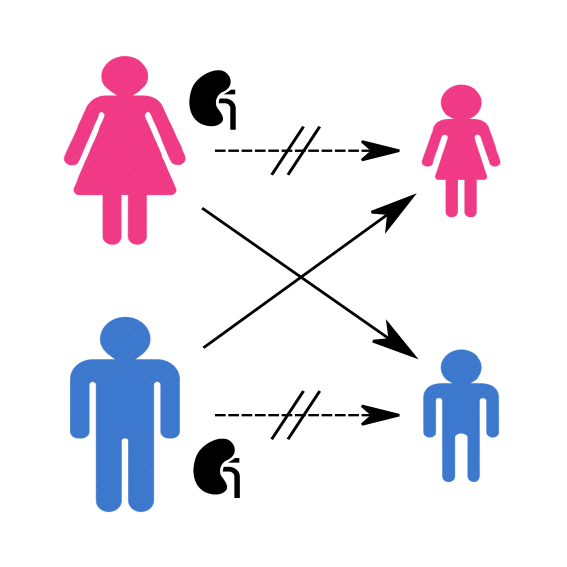|
|
Best of Both Worlds: Ex-Ante and Ex-Post Fairness in Resource Allocation
Haris Aziz, Rupert Freeman, Nisarg Shah, and Rohit Vaish
Operations Research
Journal paper (combines the EC 2020 paper by Freeman, Shah, and Vaish and the WINE 2020 paper by Aziz)
A polynomial-time algorithm for finding a distribution over EF1 allocations that is envy-free in expectation.
|
|
|
On Approximate Envy-Freeness for Indivisible Chores and Mixed Resources
Umang Bhaskar, A R Sricharan, and Rohit Vaish
APPROX 2021
Conference paper / arXiv / Video (17 min) from GAIW 2021
Resolving arbitrary envy cycles could fail to achieve EF1 even for additive chores. The paper proposes the top-trading envy cycle algorithm that guarantees EF1 for monotone chores.
|
|
|
Stable Fractional Matchings
Ioannis Caragiannis, Aris Filos-Ratsikas, Panagiotis Kanellopoulos, and Rohit Vaish
EC 2019 and Artificial Intelligence
Conference paper / Journal paper / arXiv / Video (14 min) from EC 2019 /
Video (30 mins) from COMSOC video seminar
The paper studies computational aspects of the stable matching problem when agents have cardinal preferences and one seeks a fractional solution with high social welfare.
|
|
|
Greedy Algorithms for Maximizing Nash Social Welfare
Siddharth Barman, Sanath Kumar Krishnamurthy, and Rohit Vaish
AAMAS 2018 (Best Paper Nomination)
Conference paper / arXiv
A polynomial-time algorithm for maximizing Nash social welfare under binary valuations.
|
|
|
Finding Fair and Efficient Allocations
Siddharth Barman, Sanath Kumar Krishnamurthy, and Rohit Vaish
EC 2018
Conference paper / arXiv
An algorithmic framework for finding an allocation that is envy-free up to one good (EF1) and Pareto optimal (PO), and a 1.45-approximation algorithm for Nash social welfare.
|
|
|
Opting Into Optimal Matchings
Avrim Blum, Ioannis Caragiannis, Nika Haghtalab, Ariel Procaccia, Eviatar Procaccia, and Rohit Vaish
SODA 2017
Conference paper / arXiv
The paper studies a semi-random model for kidney exchange with a worst-case compatibility graph and a uniformly random assignment of patient-donor pairs to hospitals.
|
|
|
Manipulating Gale-Shapley Algorithm: Preserving Stability and Remaining Inconspicuous
Rohit Vaish and Dinesh Garg
IJCAI 2017
Conference paper
Under the deferred acceptance algorithm, optimal manipulation by an agent on the proposed-to side is inconspicuous and stability-preserving.
|







